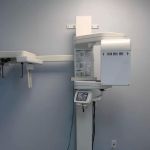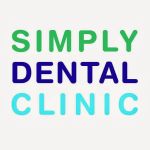Tips for Preventing Teeth Grinding During Sleep
Teeth grinding, also known as bruxism, is a common condition that affects many people, especially during sleep. While it may seem like a harmless habit, teeth grinding can cause significant damage to your teeth, jaw, and overall oral health. If you're waking up with a sore jaw, headaches, or worn-down teeth, you might be suffering from sleep bruxism. In this article, we explore the causes of teeth grinding and share practical tips to help you prevent it and protect your smile.
1. Understanding Teeth Grinding (Bruxism)
Teeth grinding, or bruxism, is the involuntary habit of grinding or clenching your teeth, often during sleep. It can occur during the day as well, but nighttime grinding is more common. Bruxism can range from mild to severe, with symptoms such as:
- Worn-down enamel and flattened teeth
- Sore jaw muscles or pain in the temporomandibular joint (TMJ)
- Frequent headaches or earaches
- Increased tooth sensitivity
- Disrupted sleep
In severe cases, bruxism can lead to tooth fractures, gum recession, and even permanent tooth loss. It’s crucial to identify and address the issue early on to prevent long-term damage to your teeth and jaw.
2. Common Causes of Teeth Grinding
There are several potential causes and risk factors for teeth grinding during sleep. Understanding what triggers bruxism can help you take steps to prevent it. Some common causes include:
2.1 Stress and Anxiety
One of the most common causes of teeth grinding is stress. When you're anxious or experiencing high levels of stress, your body may respond by clenching your teeth. This habit often occurs unconsciously while you sleep. Managing stress through relaxation techniques, meditation, or therapy can help reduce nighttime teeth grinding.
2.2 Sleep Disorders
Certain sleep disorders, such as sleep apnea or insomnia, can contribute to bruxism. People with sleep apnea often experience interrupted breathing during sleep, which may lead to grinding their teeth as a response. If you suspect that a sleep disorder is contributing to your teeth grinding, it’s essential to consult a healthcare provider for proper diagnosis and treatment.
2.3 Misaligned Teeth or Bite Problems
Teeth that are misaligned or a malocclusion (when your upper and lower teeth don’t align properly) can cause your jaw to move incorrectly while you sleep, leading to teeth grinding. If your bite is off, a dentist or orthodontist can recommend treatments, such as braces or other dental devices, to realign your teeth and alleviate the pressure that causes bruxism.
2.4 Medications and Substance Use
Certain medications, especially antidepressants and antipsychotic drugs, have been linked to bruxism. Additionally, alcohol, caffeine, and recreational drugs can increase the likelihood of grinding your teeth during sleep. Reducing your consumption of these substances, especially before bedtime, may help reduce the frequency of teeth grinding.
3. Tips for Preventing Teeth Grinding During Sleep
Fortunately, there are several effective ways to prevent teeth grinding and protect your oral health. Here are some tips that can help:
3.1 Use a Night Guard
A night guard, also known as a dental splint, is one of the most common and effective treatments for preventing teeth grinding. This custom-fitted appliance is worn over your teeth while you sleep to create a barrier between your upper and lower teeth. It helps absorb the pressure of grinding, reducing damage to your teeth and relieving strain on your jaw muscles. Consult your dentist to have a night guard custom-made for optimal comfort and protection.
3.2 Manage Stress and Anxiety
Since stress is a major contributor to bruxism, finding ways to manage stress can significantly reduce teeth grinding. Consider incorporating stress-reducing activities into your daily routine, such as yoga, meditation, deep breathing exercises, or journaling. Additionally, regular physical activity, such as walking or swimming, can help release built-up tension and promote relaxation before bedtime.
3.3 Maintain a Consistent Sleep Routine
Good sleep hygiene plays a critical role in preventing teeth grinding. Going to bed at the same time each night, maintaining a comfortable sleep environment, and avoiding stimulating activities before bed can help improve the quality of your sleep. A consistent sleep routine can also help reduce the likelihood of developing sleep disorders that contribute to bruxism.
3.4 Avoid Stimulants and Alcohol Before Bed
Avoid consuming caffeine, alcohol, or nicotine in the hours leading up to bedtime. These substances can disrupt sleep patterns and increase the risk of teeth grinding. Instead, consider drinking herbal tea or water before bed to help promote relaxation and reduce the likelihood of grinding your teeth.
3.5 Seek Professional Help
If your bruxism persists despite these efforts, it may be time to consult with a dentist or healthcare provider. They can assess your oral health, identify the underlying causes of your teeth grinding, and recommend more targeted treatments, such as orthodontic intervention or therapy for sleep disorders.
4. The Role of Regular Dental Check-Ups in Bruxism Prevention
Regular dental check-ups are essential for monitoring your oral health and identifying early signs of teeth grinding. Your dentist will check for worn-down teeth, jaw pain, and other indicators of bruxism. If they detect any issues, they may recommend a night guard or other preventive measures. By maintaining regular visits to your dentist, you can address bruxism early and prevent long-term damage to your teeth and jaw.
5. Conclusion: Protecting Your Smile from Teeth Grinding
Teeth grinding during sleep is a common yet preventable condition. By understanding its causes and implementing practical solutions, you can significantly reduce the risk of damage to your teeth and jaw. Whether through the use of a night guard, managing stress, or improving your sleep hygiene, there are many ways to protect your oral health. If you’re experiencing symptoms of bruxism, be sure to consult your dentist for personalized recommendations to keep your smile healthy and vibrant.
For more expert advice on preventing teeth grinding and other oral health tips, visit Dentistry Toothtruth for trusted recommendations and services tailored to your needs.







 Mckenzie Family Dentistry4.0 (181 review)
Mckenzie Family Dentistry4.0 (181 review) Reve Orthodontics - Midtown Atlanta4.0 (258 review)
Reve Orthodontics - Midtown Atlanta4.0 (258 review) Kay Family Dentistry5.0 (186 review)
Kay Family Dentistry5.0 (186 review) Affordable Dentures & Implants4.0 (651 review)
Affordable Dentures & Implants4.0 (651 review) Gardena Dental Care4.0 (416 review)
Gardena Dental Care4.0 (416 review) Simply Dental Clinic0.0 (0 review)
Simply Dental Clinic0.0 (0 review) The Importance of Oral Health Education During Pregnancy for a Healthy Pregnancy
The Importance of Oral Health Education During Pregnancy for a Healthy Pregnancy Best Tips for Brushing Your Teeth Properly for Healthy Gums: Essential Techniques for Oral Health
Best Tips for Brushing Your Teeth Properly for Healthy Gums: Essential Techniques for Oral Health Why Skipping Dental Checkups Can Lead to Bigger Oral Health Problems
Why Skipping Dental Checkups Can Lead to Bigger Oral Health Problems Advantages of Porcelain Dental Restorations
Advantages of Porcelain Dental Restorations How Can Diabetes Cause Tooth and Gum Problems? Preventing and Managing Oral Health Issues
How Can Diabetes Cause Tooth and Gum Problems? Preventing and Managing Oral Health Issues Healthy Habits for Promoting Good Oral Health and Hygiene: Tips for a Healthy Smile
Healthy Habits for Promoting Good Oral Health and Hygiene: Tips for a Healthy Smile